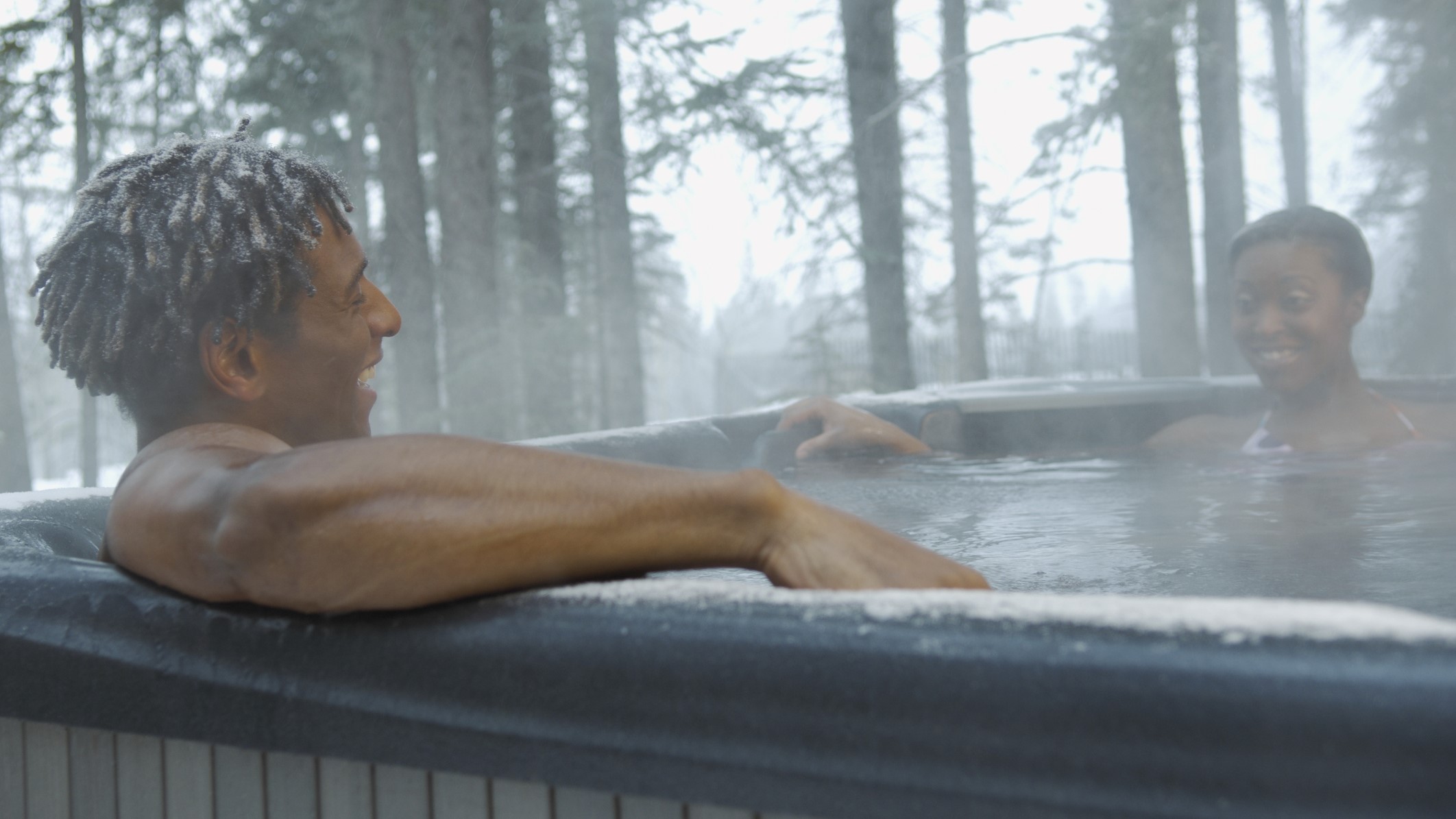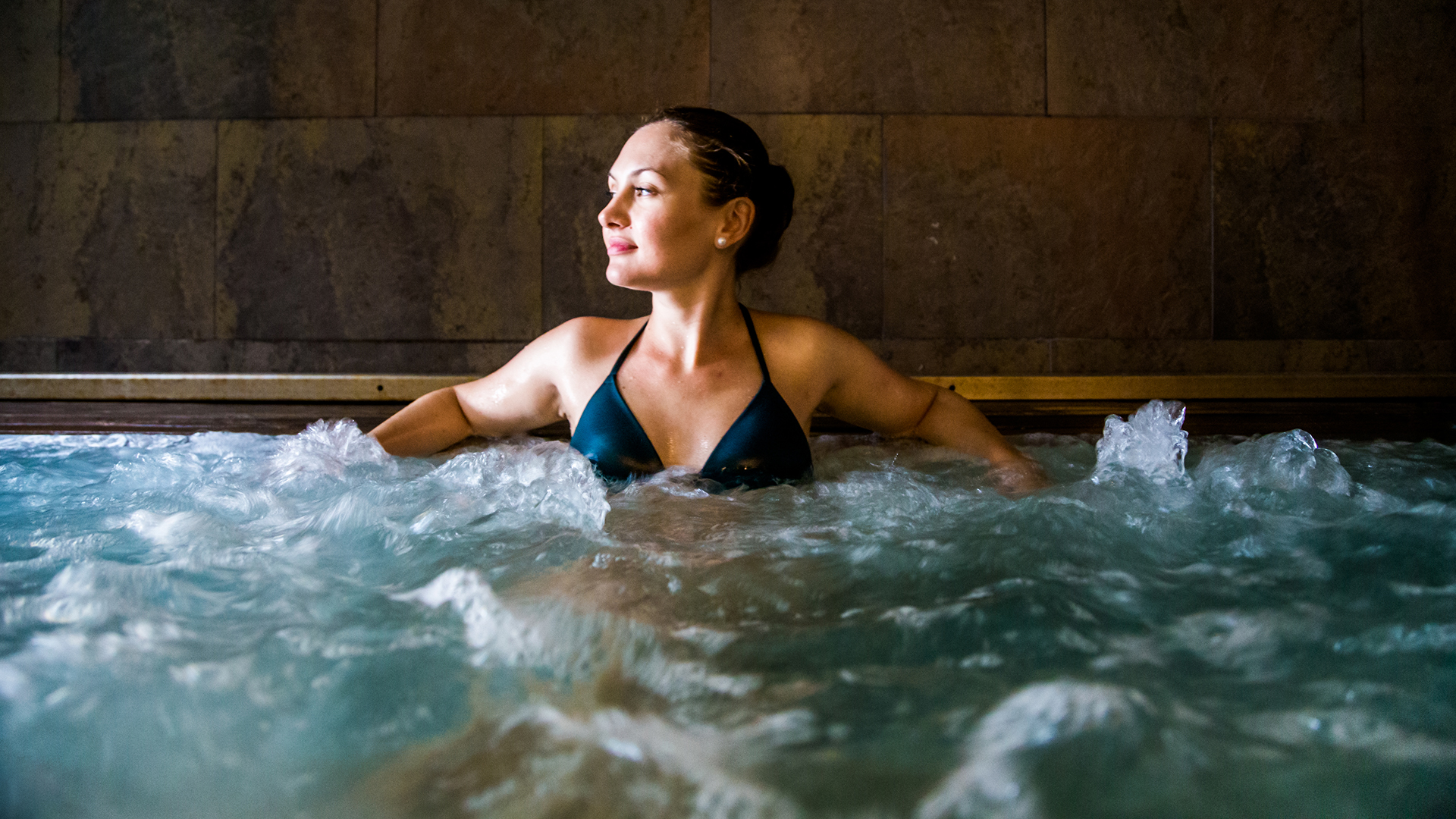You might be wondering what the health benefits of hot tubs could be – especially if you’re looking to invest in one for yourself. Professional athletes often use hot tubs and saunas after training, but is this just for relaxation, or are there other health benefits as well? Some recent studies have explored the positive effects that hot tubs can have on the body, from reducing joint pressure to inducing relaxation to reducing muscle soreness after exercise.
The best hot tubs and the best inflatable hot tubs come in a variety of shapes, sizes, and prices depending on your needs. However, the health benefits of hot tubs are universal. We’ve rounded up the positive effects that you might experience and the science that explains why. If you’ve been pondering a hot tub for your yard, this list might just seal the deal…
Health benefits of hot tubs
Hot tubs can reduce joint pressure
Ever noticed how the feeling of weightlessness in water can take away pressure on the body? A study published in Nursing Older People explored how the power of buoyancy can reduce the weight of the body by up to 90% when in water. Without that weight, the body’s joints are no longer under their normal pressure.
The relaxing effect of warm water on muscles, coupled with the weightlessness in water, is what makes hot tubs so soothing for the muscles and joints. As noted in the study, this can make warm water soaking ideal for sufferers of chronic joint conditions such as osteoporosis or arthritis.
Hot tubs can be a place to relax
The health benefits of hot tubs can also go beyond the purely physical. This 2016 study published in JAMA Psychiatry shows that hot tubs not only relax our bodies but can also have a positive effect on our minds. A hot soak helps the body release endorphins, the hormones responsible for the sensation of a natural high, relieving the brain of stressful feelings.
Scientists were so compelled by the endorphin-releasing effects of whole-body hyperthermia (WBH) - the scientific term for warm water bathing - that they conducted a clinical double-blind trial on participants with Major Depressive Disorder to see whether it could have a measurable effect on individuals suffering from depression.
The researchers found that: ‘When compared with the sham group, the active WBH group showed significantly reduced Hamilton Depression Rating Scale scores across the 6-week post-intervention study’.

The results of the trial found that the participants who bathed in warm water reported reduced feelings of depression for up to 6 weeks afterward. The study concludes that ‘Whole-body hyperthermia holds promise as a safe, rapid-acting, antidepressant modality with a prolonged therapeutic benefit.’
The study’s conclusion that warm water bathing could be an effective treatment for depression makes it one of the most intriguing potential health benefits of hot tubs. To maximize the positive effect of the endorphins, use your hot tub approximately one hour before you plan to go to bed. The stress relief provided by the endorphins could help you drift off easily.
Combat difficulty falling asleep with hot tubs
Speaking of falling asleep, some other health benefits of hot tubs also lend themselves to a good night’s sleep. As well as releasing endorphins that relax the body, hot tubs have another surprising effect that can help you get to sleep: cooling.
It might sound counterintuitive that bathing in hot water can help you sleep by making you cool, but bear with us. Science tells us that as we sleep, we enter a state of reduced bodily function, where energy from heating our body is redirected to the most vital organs. This thermoregulation, to give it its proper name, is why we sleep at a colder temperature than we live at.
This is why when you use a hot tub approximately an hour before sleeping, some studies show that the body recognizes the feeling of cooling down after being in the warm water as a trigger for sleep, helping you drift off quickly.
Hot tubs reduce muscle pain after exercise
One of the health benefits of hot tubs used by professional athletes and sports trainers is reduced recovery time after exercise. If you’ve ever felt pain in your muscles the day after a strenuous workout or hike, the culprit is probably lactic acid build-up. Lactic acid is a perfectly normal bodily acid that is sometimes overproduced in muscles as a byproduct of exercise. This is particularly likely to occur if it was an especially vigorous session that left the body with less oxygen in the bloodstream.
Hot tubs, in particular, help with ‘lactate reduction’ after a build-up, where this acid is broken down and dispersed from your muscles and joints. This can occur through the use of warm water, as shown by one study. However, as Olympic Sports researchers discovered, the massaging effects of bubble jets can also help as well. The faster your body deals with lactic acid buildup, the quicker you can get back to healthy movement without soreness.
Hot tubs can have similar effects on the body as exercising
We know this one might seem too good to be true, but the science really does show that bathing in hot water can have many of the same effects as aerobic exercise.
In a recent scientific review of the evidence, researchers identified several different responses that the body has when bathing in hot water that were identical to the bodily responses from cardio exercise. One of these is an elevated heart rate, which can, in turn, reduce blood pressure and improve healthy blood flow.
However, they do note that using a hot tub doesn’t replicate all of the same effects as exercise, so it doesn’t mean you can skip your workouts on the best exercise bike entirely. However, it does demonstrate the sometimes surprising health benefits of hot tubs.

